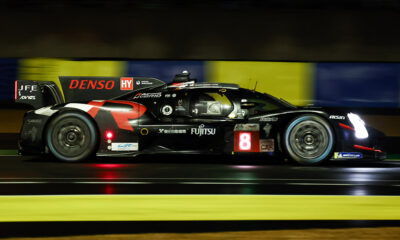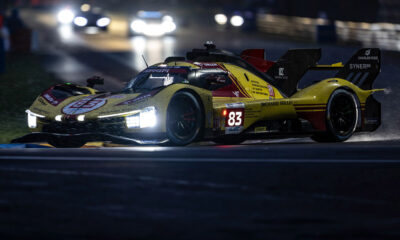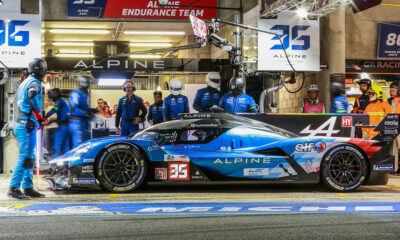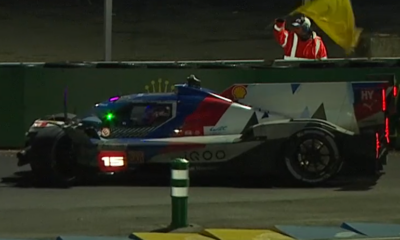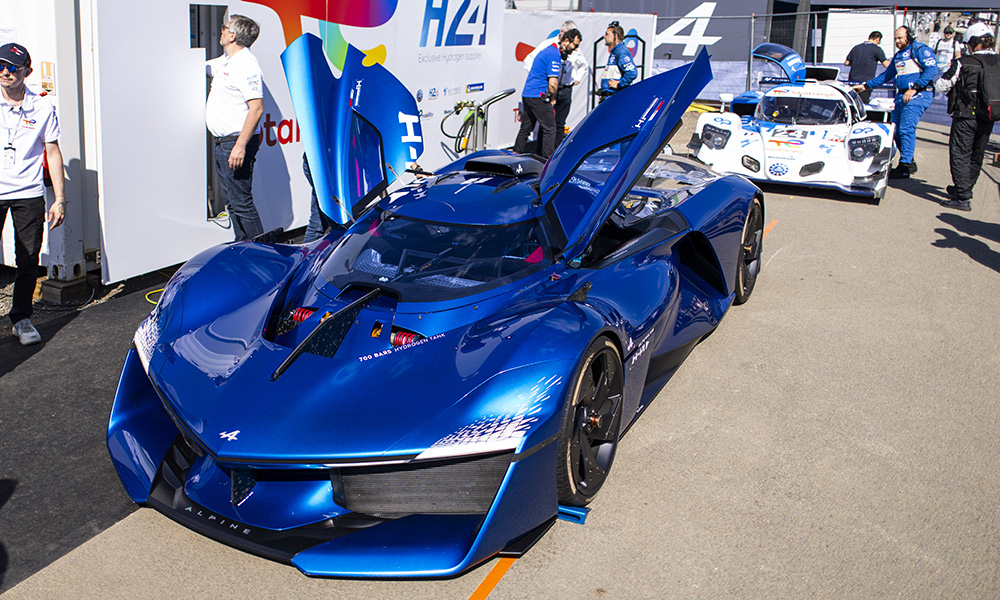
Photo: Julien Delfosse/DPPI
Toyota Gazoo Racing team director Rob Leupen has welcomed Alpine’s backing of a liquid hydrogen-based solution for the hydrogen regulations that are due to be introduced in the 24 Hours of Le Mans in 2027.
Alpine gave the firmest indication yet of its intentions to use the new technology for an assault on the FIA World Endurance Championship centerpiece earlier this month upon the reveal of the hydrogen-powered Alpenglow concept car at Spa.
It follows Toyota’s unveiling of the GR H2 Racing Concept at Le Mans last year, with the Japanese marque having pioneered the use of hydrogen internal combustion power with its Corolla program in Japan’s Super Taikyu series and Fuji 24 Hours since 2021.
Although neither Toyota nor Alpine have yet made a firm commitment to building a hydrogen-powered car to race at Le Mans, Leupen believes that Alpine coming out in favor of liquid hydrogen comes a boost for the Japanese marque’s ambitions.
“It’s good, it’s the progression you would like to see,” said Leupen. “Toyota last year explained their interest in hydrogen in this environment [WEC], and now we can say Alpine is showcasing the same.
“It’s a powertrain concept which has a future. We are very happy about it, that we are not the only ones pushing this.
“There always has to be one to kick it off. Now we have Alpine potentially as a second, and maybe there will be more.”
While the Alpenglow Hy4 that was revealed ahead of the 6 Hours of Spa-Francorchamps is powered by gaseous hydrogen, VP Alpine Motorsports Bruno Famin confirmed that a liquid hydrogen version of the car is already under development.
He called the use of hydrogen combustion technology a “very promising solution for sports car racing” while praising the Automobile Club de l’Ouest for specifying a clear timeline for its introduction at Le Mans.
“We keep almost everything of what we love about internal combustion engines, but with almost no emissions,” said Famin of hydrogen combustion technology.
“We will have different kinds of challenges with this car. One is to get it working, to get it reliable. We are going to have problems, of course, but I am very confident that we will find solutions for every single problem [we encounter].”
Alpine Racing Vehicles Director Francois Champod also shed light on why the marque chose to pursue hydrogen combustion over fuel cell technology, which was envisaged by the ACO to form the basis of the hydrogen rules when they were first announced.
“We believe for this kind of application, very high load, ICE is interesting,” said Champod. “The power-to-weight ratio is very good and the cooling requirements are less because heat is ejected through the exhaust.
“From an environmental point of view it’s quite attractive: no soot, no CO2. And of course there is the sound, which is the thing we like as car lovers.”
Leupen Skeptical About Existing Hydrogen Timeline
While the hydrogen rules officially remain on course to be introduced in 2027, Leupen cast doubt on Toyota being ready in time to field a car at Le Mans in three years’ time on the basis that specific regulations have not yet been published.
As well as the rules, he also highlighted the need for certain decisions to be made in terms of preparing the necessary infrastructure for hydrogen cars to race at venues such as the Circuit de la Sarthe.
“A lot of things have to happen,” Leupen said. “The regulations need to be defined.
“If you see what hydrogen needs from infrastructure, what it needs to operate… if you say, ‘Let’s put a hydrogen generator at Le Mans’, maybe everybody is backing off, or the fire brigade says it’s not possible, or [they ask], ‘Can you put it 100 meters away?’ No.
“So I think it’s a long way off. Without the infrastructure, you will not be able to race.
“It all has to come together. We need to have regulations to build the car, which as far as I’m informed today, we do not have.”
Pressed on whether he felt 2027 was no longer a viable target for the introduction of the new rules, Leupen replied: “When we are there, and when we know when we will be there, we can only say when we have a set of regulations.
“At the moment, the engineers are looking into a lot of options and possibilities, but I have not seen a set of rules yet.”




















